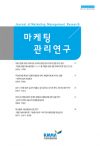한국IT서비스학회지, 16(3), pp.147-165
박재영, 김범수, 김전도
Recently, there have been numerous issues about password breaches and it is becoming important for the users to manage their passwords. In practice, the online service provider are asking the online users to change their passwords periodically. However, majority of the users are not changing their passwords regularly, and this can increase the risk of password breach. The purpose of this study is to investigate whether ‘fear appeals’ and ‘message framing’ enhance the behavior of changing passwords by the online users. Furthermore, we identify the mechanism on how the behavior of changing passwords is enabled using protection motivation theory. The results of an online experiment show that the online users who are exposed to ‘fear appeals’ perceived a more vulnerability and severity of password breaches, which in turn, increased the intention of changing their password. In addition, we found that perceived severity of password breaches affect fear positively. Moreover, we found that fear has significant impact on the willingness of changing passwords. Finally, Message framing plays a moderating role between fear and change intentions. That is, in a situation where ‘fear appeal’ is presented, it means that ‘gain framing’ is more effective than ‘loss framing’ These findings suggest that the online service providers may need to use ‘fear appeals’ to the online users. Security managers can address issues related to the password breaches by carefully designing ‘fear appeals’.






